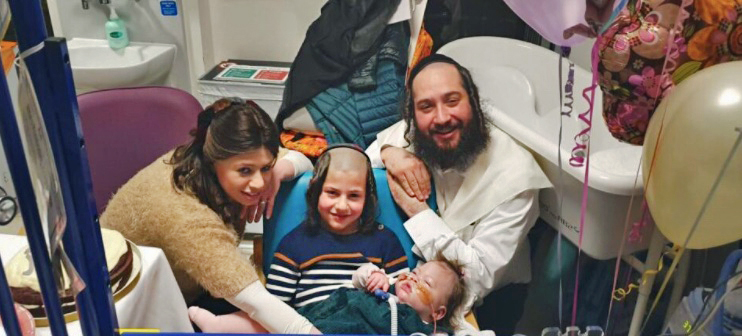The case of Alta Fixsler, a young girl born with catastrophic brain damage, leaves one with a sense of deep sadness at the tragic nature of life. It strikes at the heart of debates around life and the context of death, particularly during our debate over assisted suicide.
The Royal Manchester Children’s Hospital has won legal support for removing life-support from Alta. Her parents, Hasidic Jews, have disagreed, with dissension rooted in their faith. The case hinges on the hospital’s argument that Alta experiences “constant pain.” Despite parental protestations that she is in no distress, her clinicians have argued this is simply her medication suppressing the pain. The evidence of involuntary movements, interpreted as spinal spasms, supports the withdrawing of treatment to alleviate suffering.
And yet, as Dominic Lawson argues in The Times, how can this judgment be based on pain Alta experiences? He quotes leading pain expert Dr Rajesh Munglani, to the effect that it is nonsensical to remove treatment due to pain. Alta Fixsler can’t actually experience suffering: it is a higher cognitive function. It is highly likely she cannot experience pain because her damaged brain prevents this. According to Dr Munglani, spinal spasms do not prove pain either.
This gets to the crux of our societal debates over what constitutes a life worth living and a death worth dying. Many who argue for assisted suicide do so on the basis on alleviating unbearable suffering. This is understandable, but is not necessarily the true motivation. In 2020 in Oregon, USA, where assisted suicide is legal, 53% said they chose this path to avoid being a burden; add in the likelihood of contributory psychological issues and pain as a reason slips down the list.
The use of pain as a means to push arguments for assisted dying betrays a cultural misunderstanding of pain itself. Having a genetic fragile skin condition, Epidermolysis Bullosa, I am intimately acquainted with pain in its various forms, from the wearingly chronic to the excruciating acute. This is of course a burden I’d not wish on anyone. But for me the pain itself is not a reason for despair or loss of hope in life itself. The point is that my disability is a particular, concentrated example of the universal of pain we all face, given that we all exist on what Alasdair MacIntyre calls a “scale of disability”. Simply reducing life to pain and suffering as measures of life’s quality is a cold utilitarian calculus, devoid of life’s (and death’s) complexities. Questions of meaning, purpose and relationships are stripped away.
Returning to Alta Fixsler, the question is whether she qualifies as a human person, with all the resulting rights and duties that entails. It is because her parents believe she qualifies that they wish to take her home to die. Further to this, do those like myself qualify as persons, or not? If pain and suffering are life’s main measurement, then the compassionate effort to alleviate this will end in a callous move to erase it altogether: by removing the people themselves, reduced from persons to beings, as the source of the suffering. It is already happening in places like Oregon, Holland and Belgium. We should not follow them.










Join the discussion
Join like minded readers that support our journalism by becoming a paid subscriber
To join the discussion in the comments, become a paid subscriber.
Join like minded readers that support our journalism, read unlimited articles and enjoy other subscriber-only benefits.
Subscribe